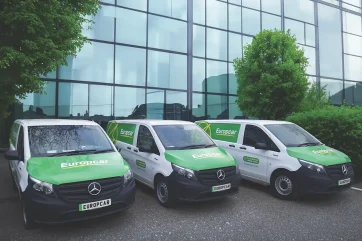
New research commissioned by Europcar has investigated reasons why electric van adoption is lagging behind cars in the UK.
The research has been published by the rental company in the white paper ‘Van electrification: understanding barriers, identifying solutions’.
Europcar said 61% of the fleet operators who took part in the research were already using e-vans, and 45% of those said they faced challenges with the real-world range of the vans on fleet, while 33% were concerned that public charging was unsuitable for vans.
Of the 39% of operators who did not yet have e-vans on fleet, 38% said this was because they did not consider electric vans to be fit for purpose and 15% put it down to cost. 46% said they would add e-vans to their fleet if they had a longer range.
The white paper features input from the BVRLA and The EV Café, as well as real-world examples of companies using electric vans.
Europcar Vans and Trucks director Keith Shorter said: “Vans are lagging behind cars when it comes to electrification. One reason for this is the demands that their size and weight put on battery range, making progress to longer range vehicle options much slower for vans than cars.
“Our research confirmed that range anxiety is holding back a considerable proportion of would-be electric fleets. However, cost, charging infrastructure and lack of knowledge also play a part.
“To encourage accelerated take-up of electric vans, we need the government to continue offering financial incentives, to see that improvements are made to ensure the existing and future charging infrastructure is suitable for vans and that amendments are made regarding regulations that impact electric vans.
“In the meantime, renting an electric van allows fleets to find out how zero emissions vehicles can work their business, with no risk and minimal commitment. Test drives from manufacturers and dealers are too short to be reassuring in terms of range, but rental can provide drivers with the opportunity to test e-vans in a real-world working environment.”





